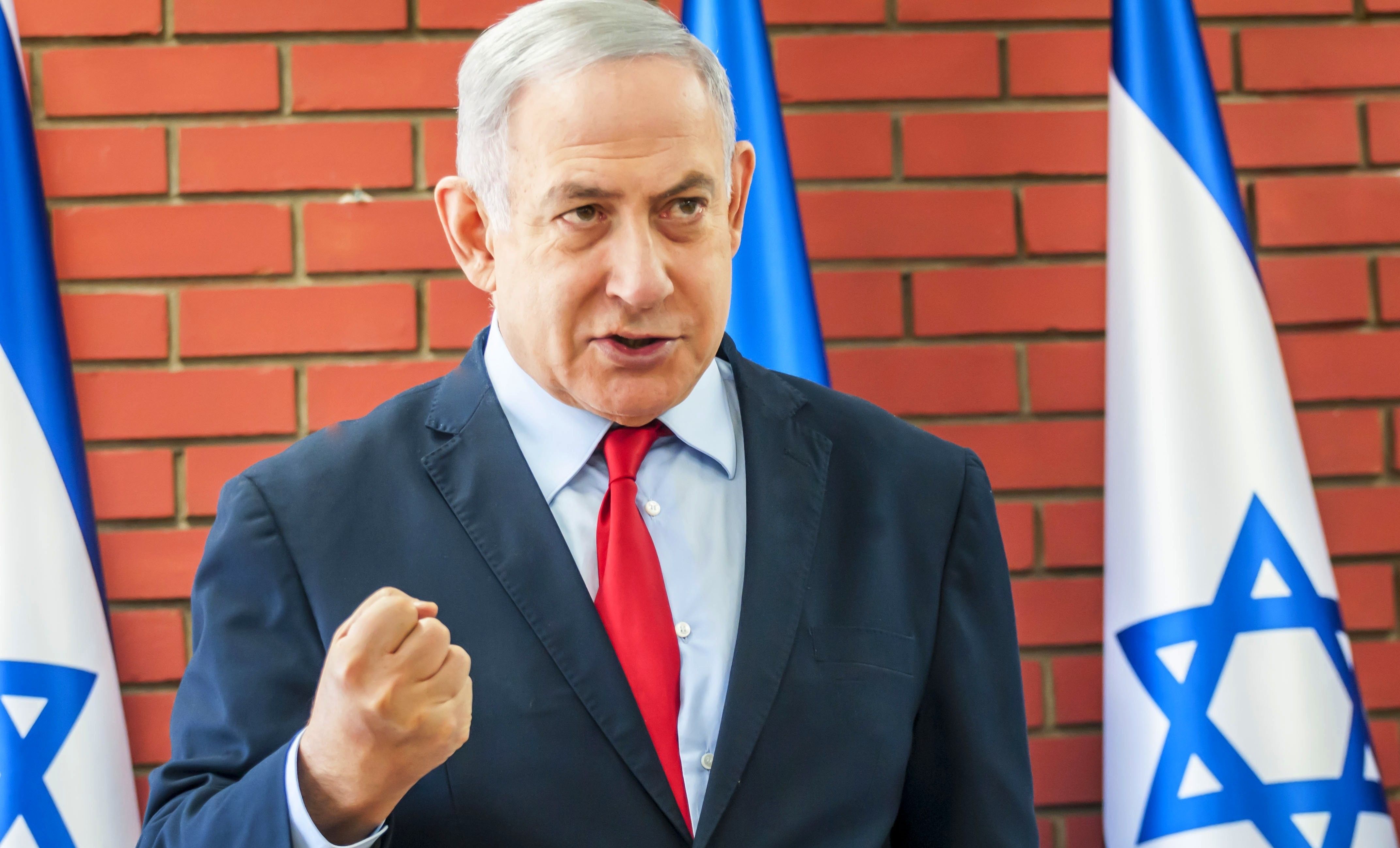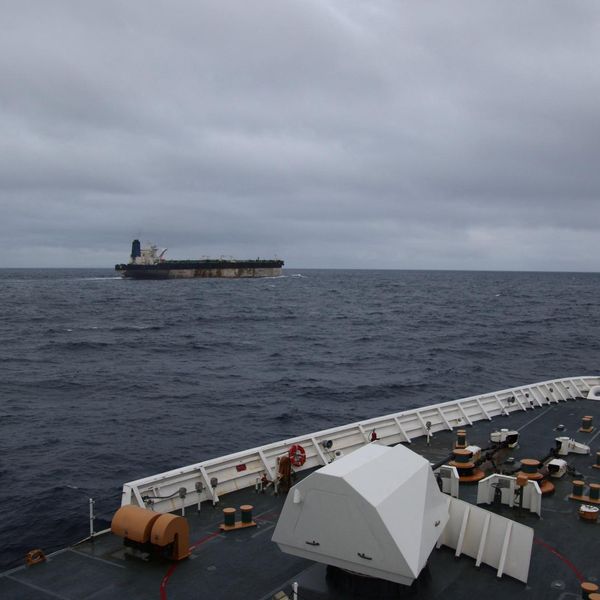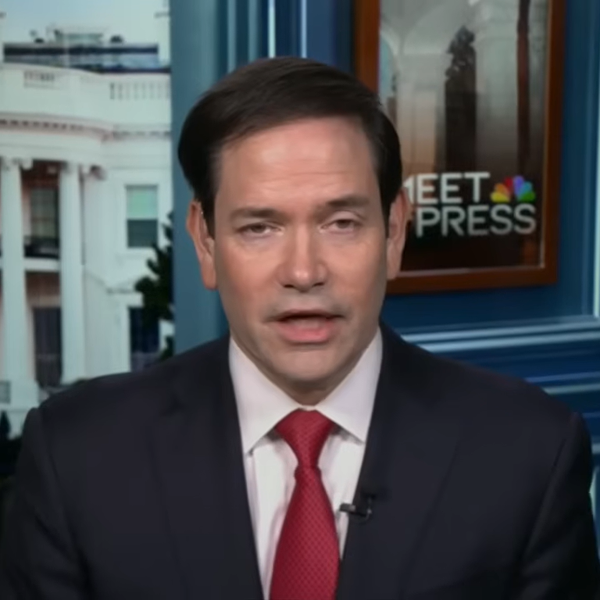A recent essay from Israeli writer Gadi Taub in Tablet makes clear that Israel’s war in Gaza is not its last. Israel is going “to shed its defensive strategy and go on the offensive.” That means taking out Hezbollah and then taking on “a multifaceted struggle against Iran over its drive for regional hegemony and its nuclear weapons program.”
Taub, whose hawkish views in many ways reflect the vital center of Israel opinion, sees the Biden administration as following a longstanding Democratic policy of appeasing Iran. In sharp contrast to Henry Kissinger, whose 1970s diplomacy he lauds, Taub finds Secretary of State Antony Blinken’s policy to be a disaster. “By empowering the Iranians, Blinken’s policy will inevitably also further the penetration of the region by Iran’s patrons, the Russians and the Chinese, at America’s expense. Kissinger’s policy was focused on pushing America’s great power rivals out. American policy today is inviting them in.”
The Dream Palace of the Israelis
The most extraordinary feature of Taub’s essay is its unreal portrait of the regional forces arrayed for and against Israel. Iran, Taub writes, “is at war with the old American regional alliance system — which includes Israel, Egypt, Jordan, Saudi Arabia and the Gulf states. But Secretary Blinken and President Biden are appeasing the new radicals, not containing them.”
In this imaginary tableau, shared by Israeli Prime Minister Benjamin Netanyahu, Israel is in an unspoken but deep alliance with the Sunni Arab states, who want to see Hamas crushed and Iran and its proxies relentlessly attacked. What these rulers say in public, so the story goes, is miles apart from what they say in private. In public, of course, Arab leaders are breathing fire about Israel’s mad amplification of the Dahiya Doctrine in Gaza. In private, these Arab leaders are reportedly telling U.S. and Israeli insiders (but seemingly no one else) that they heartily approve Israeli’s operations.
This Israeli view of Arab leaders is delusional. Yes, Arab leaders have big issues with Hamas. But they also think, as do their people, that Israel’s extreme violence in Gaza may open the gates of hell, as the 2003 Iraq War once did. They don’t think it’s possible to pulverize Hamas into oblivion, because new defiant leaders will inevitably emerge. Israel, in their view, is not solving anything, but rather magnifying insecurity in the region.
The (feeble) attempt by Blinken to put restraints on Israel’s conduct of the war in Gaza is said by Taub to invite Russia and China into the region, but in fact it is Israel’s policy that does so. That policy pushes Iran and America’s traditional Arab coalition into one another’s arms, making them realize that they have congruent interests in opposing Israeli plans. These interests, in turn, are likewise simpatico with those of Russia and China right now. Taub believes that Israel’s coming offensives would break the new relations between the Saudis and the Sino-Russian bloc. No, these relations would be strengthened.
This Islamic consensus — which joins Arabs, Iranians, and Turks and is supported by Russia and China — would be given further impetus if Israeli ambitions in the West Bank are fully realized. Another Nakba in Gaza and in the West Bank is anathema to America's Arab friends.
Yet Israeli Prime Minister Benjamin Netanyahu speaks of the Palestinian Authority just as harshly as Hamas or Hezbollah. He has rejected U.S. proposals to bring the PA into Gaza after the war. Netanyahu maintains within his coalition powerful ministers (National Security Minister Itamar Ben-Gvir, Finance Minister Bezalel Smotrich) who have big plans for the West Bank and Temple Mount. In this regard there appears to be a fourth security front in the West Bank and Jerusalem, distinct from Gaza, Lebanon, and Iran.
Washington as Enabler and Restrainer
Taub hangs his essay on a comparison between Henry Kissinger’s Middle East diplomacy in the 1970s and Antony Blinken’s policy today. Kissinger, Taub relates, taught a masterclass in diplomacy. Arab leaders, Kissinger saw, “would understand that only the U.S. could deliver Israeli concessions, and that the price–peace with Israel and breaking with the Soviet orbit–would be worth it. It worked.”
Fast forward to today. If the United States cannot or will not deliver Israeli concessions, surely its leverage with the Arab states is sharply diminished.
Israel is totally dependent on U.S. arms for the conduct of its current and projected operations. “The Israelis are playing with house money,” as one U.S. official puts it. As of December 1, transfers loaded on to U.S. cargo planes included 15,000 bombs and 57,000 artillery shells. More is on the way. The Biden administration has lots of leverage over Israel. They are just unwilling to use it.
The Biden administration has rightly warned Israel against a big offensive operation in Lebanon. Hezbollah is in a use-it-or-lose-it situation with respect to its offensive systems, with Hezbollah reportedly having 100,000 to 150,000 missiles and rockets, far superior to Hamas’s force. The evacuation after October 7 of some 80,000 Israelis from communities bordering Lebanon is undoubtedly an unacceptable outcome for Israel, but Israel cannot seek to eliminate Hezbollah without incurring grave risks to its own population.
It would be far better for Israelis to reoccupy the northern towns under the auspices of the mutual deterrence that prevailed before October 7, rather than to launch a big war against Hezbollah. However, the Israelis clearly think otherwise.
Defense Minister Yoav Gallant has promised a military campaign to drive Hezbollah beyond the Litani River unless Hezbollah heeds Israel’s ultimatum to evacuate the border region. The horrifying risk from such an escalation is that Israel would turn Beirut and southern Lebanon into Gaza.
If Taub’s views are a reliable guide, the Israelis have totally given up on Biden and the Democrats. The putative “appeasement” of Iran is not “an offhand mistake of the Democratic Party” but “a premeditated strategy designed to strengthen Iran at the expense of America’s traditional allies.”
At a time when Arab Americans and their allies are livid with Biden and Blinken, it is curious to find Taub and the Israelis joining in the execration. The former group hates B&B for giving Israel the greenest of green lights, the other for the bright red lights (stop with the civilian killing, don’t invade Lebanon) that Taub discerns.
The administration’s position is unenviable. On one side is the geopolitical disaster that follows from a blank check to Israel, on the other the domestic perils of having a gigantic fight with Netanyahu and the whole Israeli nation. In this acute battle between the national interest and personal political survival, will President Biden do a John Adams and choose country over party? I do not have an answer to this question.
One thing is crystal clear. Supporting Israel means supporting a grand design that calls for a war on all fronts, financed and enabled by the United States. The Israelis seem to have no consciousness of the fact that previous uses of force in Lebanon and Palestine didn’t solve their security problem. Instead, they believe that more destruction, on a Dresden-like scale, will do this time around what it has not done in the past.
Given Israel’s lonely existence in a sea of Muslims, this belief seems irrational to me. Israel cannot get rid of its security problem or its enemies by the massive use of force. Escalation imperils Israelis as much as it imperils their neighbors. But the Israelis hold to their belief in force with theological conviction, and the belief should be taken with the utmost seriousness. Thus far, this irresistible force has not encountered an immovable object.
- Will US troops be drawn into the Israel-Gaza war? ›
- How US, Hezbollah interests align amid Gaza war ›
- Why Hezbollah doesn't want a full-scale war. Yet. ›
















